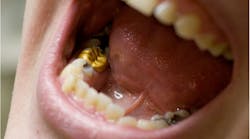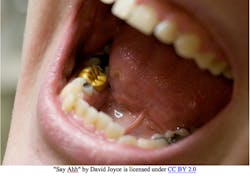In these increasing environmentally-conscious times, efficient and responsible disposal of your dental waste is not only enforceable in most countries by law, but can also be a great way of showcasing your practice’s green credentials, which is increasingly important to your patients and local community alike.
In the U.S. and U.K. for example, the proper disposal of the wastesproduced by dental technicians is regulated by the Environmental Protection Agency (EPA) and the Environment Agency, both of which can enforce heavy fines and closures for noncompliance.
For this reason alone it’s worth getting your practice up to speed with the latest advancements in legislation and recovery. Did you know that rebates from precious metals recovered in some dental wastes can in some cases offset, and even exceed, charges incurred for the disposal of non-value wastes?
Efficient management of your waste amalgam in particular can provide surprising financial benefits. Depending on how the amalgam was mixed, roughly half will be made up of mercury, with the remainder containing a silver-bearing metal alloy.
Specialist waste recycling companies now have the capabilities to break down the amalgam, separating the mercury for re-use, and refining the alloy to recover the silver. Our recommended approach is to save up amalgam throughout the year in U.N. approved containers and only have it collected in large quantities. For small amounts of less than a kilogram, your chances of negotiating a rebate are small due to the comparatively low silver returns, but upwards of a few kilograms and you might be pleasantly surprised.
Other silver bearing, and therefore valuable wastes are also produced from X-ray imaging equipment. Old X-rays can be incinerated to recover the silver, and the chemical called fixer will also contain silver, which was stripped from the unexposed film. This silver is commonly recovered by electrolysis or ion exchange and can be achieved by purchasing on-site silver recovery equipment that will carry this out at your premises, or by calling in a licensed company to take it away and do it for you.
As with the waste amalgam, quantities will play a big role in the kind of rebate you can expect, but again, if you can safely store rather than have it collected incrementally, you just might find the returns cover your surgery’s waste disposal costs for the year.
For more information on dental waste amalgam recycling and precious metal refining and recovery, check out the All Waste Matters site at www.allwastematters.co.uk.
Stewart Gillham is the managing director of All Waste Matters.







